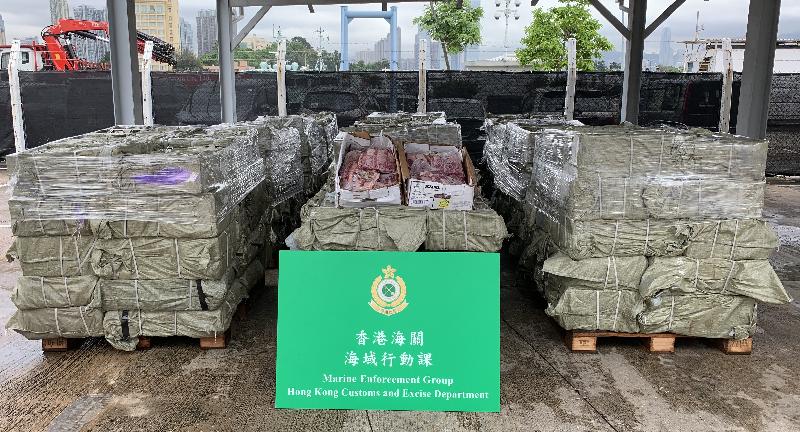Hong Kong Science Museum exhibition offers fascinating glimpse of winter sports
The Hong Kong Science Museum is holding a new exhibition entitled “Winter Games” from tomorrow (June 14) to October 16, offering visitors a glimpse of exciting winter sports and giving members of the public a taste what it feels like to be a winter sports athlete.
The opening ceremony of the exhibition was held today (June 13). Speaking at the ceremony, the Director of Leisure and Cultural Services, Ms Michelle Li, said that Finland, Denmark, Norway and Sweden have taken their remarkable creativity to another level entirely, exporting the thrills and chills of the Nordic winter sports to Hong Kong.
She added that the Hong Kong Science Museum will be home to a variety of interactive winter sports and games exhibits. Through the Museum’s high-tech collaboration with its counterparts in the four collaborating Nordic countries, a “cooling experience” of the Nordic winter will be offered in subtropical Hong Kong.
She also expressed her gratitude to the four science centres from Finland, Denmark, Norway and Sweden involved in creating the exhibition, both to promote science and showcase how science is related to people’s daily lives and sports.
The exhibition features 20 interactive exhibits which simulate various winter sports, allowing visitors to feel like they are experiencing real winter games. Examples include imitating a figure skater and attempting some challenging rotations; participating in an exciting biathlon to test your skiing speed and shooting accuracy; sitting on a bobsleigh and working with teammates to cross the finish line as quickly as possible; delivering a curling stone and helping it slide to the desired position; and learning different ice hockey shots so as to score in the most efficient way.
In addition to the interactive experiences, information on the history of each of the winter sports is presented along with the various competition formats and rules, as well as the scientific principles behind them.
Other officiating guests included the Consul-General of Finland in Hong Kong and Macao, Ms Johanna Karanko; the Chief Executive Officer of Heureka, the Finnish Science Centre, Dr Tapio Koivu; the Chairman of the Science Sub-committee of the Museum Advisory Committee, Professor Ching Pak-chung; and the Museum Director of the Hong Kong Science Museum, Ms Paulina Chan.
The exhibition is presented by the Leisure and Cultural Services Department, organised by the Hong Kong Science Museum, and produced by four science centres, namely the Experimentarium in Denmark, Heureka in Finland, the Tekniska museet in Sweden and VilVite in Norway. It is supported by the Consulate General of Finland in Hong Kong and Macao and the Finnish Chamber of Commerce in Hong Kong. For details, please visit the Science Museum’s website at
hk.science.museum/ms/wg2019/eindex.html or call 2732 3232 for enquiries.
To ensure safety, visitors are advised to wear suitable clothes and shoes for playing simulated sports when visiting the exhibition.
The Hong Kong Science Museum is located at 2 Science Museum Road, Tsim Sha Tsui East. read more


